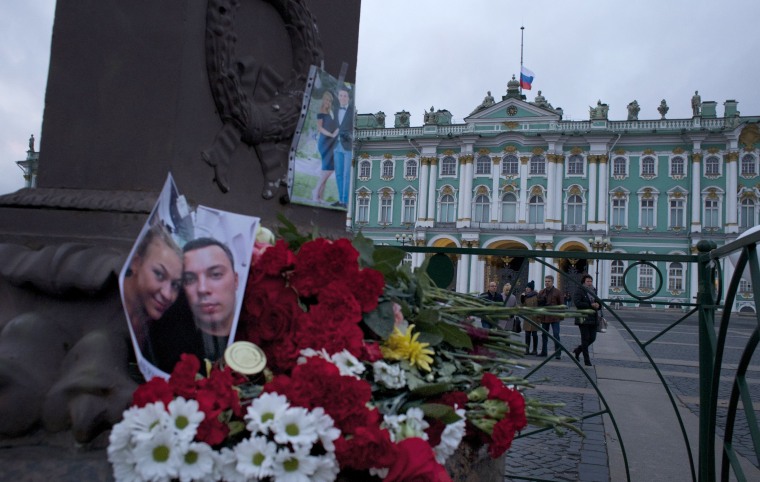The Department of Homeland Security announced Friday additional security measures to be implemented at commercial flights bound for the United States from just under ten airports across the Middle East in the wake of a deadly plane explosion in Sharm el-Sheikh — potentially at the hands of terrorists.
The announcement came on the same day Russia declared a temporary suspension of flights to and from Egypt.
“While there are no direct commercial air flights from Sharm el-Sheikh, Egypt to the United States, these enhancements are designed to provide an additional layer of security for the traveling public, and will be undertaken in consultation with relevant foreign governments and relevant passenger and cargo airlines,” DHS Secretary Jeh Johnson said in a statement.
The U.S. is teaming up with foreign governments to ramp up security at airports with direct flights to the U.S. including Cairo and Kuwait as well as Amman, Jordan. In all, just under ten airports in the region are affected.
Related: Crashed Metrojet's Voice Recorder is Working: Official
The enhancements include expanded screening of anyone or anything that goes on a plane — luggage, food, beverages and cargo. The screening also includes fresh assessments in conjunction with America’s international partners of foreign airports and offers of other aviation and airport security assistance to those airports.
"You know while we can't rule anything in or out, we have to consider the possibility that of potential terrorist involvement here," White House press secretary Josh Earnest told reporters on Friday.
The security upgrade comes a year after the Transportation Security Administration issued an emergency directive for overseas airports to watch for explosive devices.
Related: Russian Plane Crash: Moscow Suspends Egypt Flights Amid Bomb Theory
“…What I think passengers could anticipate seeing is some stepped up, ramped up security in terms of perhaps of additional police patrols in those airports that have canines, perhaps additional canines, bomb sniffing dogs,” former TSA administrator John Pistole said. “Perhaps some additional explosive, swabbing of the hands and accessible property that goes in on carry on. Things like that, but not necessarily every airport.”
After condemning the British move to suspend flights from Sharm el-Sheikh in Egypt, Russian president, Vladimir Putin, ordered all Russian flights to Egypt suspended on Friday.
Putin acted on a recommendation from his chief of intelligence. Pieces of the plane have been sent to Moscow for testing, and analysts are looking for traces of explosives or other signs there could have been a bomb on board.
The White House announced in the wake of this Metrojet crash they are reviewing security and really reviewing it at overseas airports for flights inbound.
In total, 275 overseas airports have agreements with how they work with the TSA and the U.S. to enhance and ensure that the security is operational and in compliance with TSA regulations.
In the dozens of TSA locations around the world, hundreds of people “work with the host country and the airport authorities there for any airlines that fly directly to the US, to do audits and inspections,” Pistole said. “They look at the actual checkpoint, they look at the vetting of the employees, they'll look at perimeters security, they'll look at the catering. They'll look at really the soup to nuts in terms of what goes on at that airport, and that's a good thing."
Such efforts aren’t without flaws.
“The downside is it may only do it for that day, or several days, that those inspectors are present,” Pistole said. “So we don't have that confidence 365, 24/7.”
A handful of those airports, specifically those in the Middle East, will likely receive a mandate and/or a strong recommendation from the U.S. from the TSA working in concert with the airlines and the foreign governments that they need to step up security in the wake of what happened to Metrojet. This could include enhanced random screenings as well as possibly enhanced screenings of passengers of luggage and cargo.
However, when an airport doesn't have flights to the U.S., then it's really beyond the U.S.'s jurisdiction.
“Then it comes down to working with our allies, for example the Brits, who do have flights to Sharm-el-Sheikh for example, working with them to make sure that they are doing the similar activities, audits and inspections that we would do,” Pistole said.

What the British government has been doing is saying especially to those passengers in Sharm el-Sheikh, Egypt “you can fly out but your luggage can't fly out on the same plane.”
In the U.S., there are no dramatic changes to the security posture.
There is the possibility of more random screening, more swabbing of hands looking for any indications of explosive residue and more canine teams possibly in airports.
These moves would be intended as a deterrent to dissuade anyone who might be persuaded or enticed by ISIS and by the possibility that the crashed Metrojet airliner was brought down by a bomb.
“The inspectors have the inside knowledge as to capabilities of the technology, the protocols that are used, the training that the officers, TSA officers use,” Pistole said. “Terrorists don't have that insight, and so they are operating in the blind. The other aspect and the huge part of this which is missing from these tests, is there's no actual intelligence about a imputative terrorist wanting to do something bad.”
